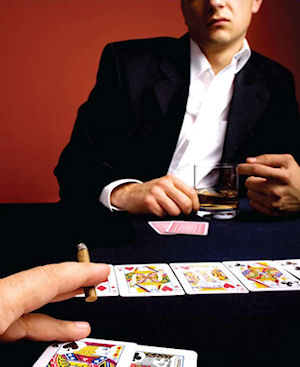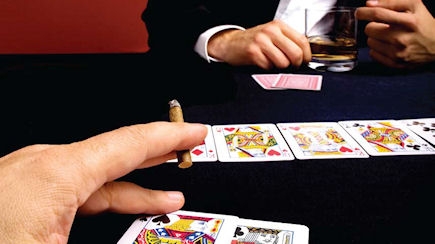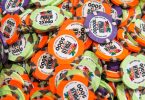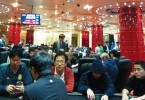This article first appeared in the Sep/Oct 2010 issue of World Gaming magazine.
New poker players are obsessed with making great calls. They love to tell people how they knew their opponent was bluffing and how they called down a huge pot. Players in the know are more pragmatic as they have seen much more action over the years. Seasoned players understand that not losing money is just as good as winning it.
You can spot a good player by the way they have the ability to escape bad situations. They understand that winning money on a poker table is not the easiest thing in the world to do, so they learn not to give it back without good reason. You can’t win every hand you play and there will be times when you call and lose, but try to make these rare events especially when you’re talking about large bets late in a hand.
How many times have you heard a fish at the poker table say, “I know I am behind but I have to call!” If you know you are behind save your money! It’s as if these players hate money or are on a crusade of charity. Even on the river you will see what is commonly referred to as a ‘crying call’. This is when a bad player, who knows he is beat, feels compelled to lament their situation and then put their money into the middle anyway – and normally they are soundly beaten!

How can you identify and avoid this situation? Well you must be able to admit when you are beat. You might have had the best hand pre-flop, after the flop and after the turn but that is all irrelevant if your opponent has taken the lead on the river. Sometimes bad poker players play hands through spite. They think “I had the best hand at the start, so I should win this hand regardless.” This is the worst kind of player and they never have any chance of becoming winning players.
Let’s have a look at some of the classic big laydowns. You are sitting on the button. A person in early position raises around to you and you wake up with KK. You instantly reraise hoping to win a nice little pot with no risk, or at the very least reduce the number of runners in the pot. The big blind decides to call out of position and the early raiser also makes the call. Three players see the flop. This isn’t a bad position for you to be in as you have the second best possible hand, position on your opponents and the chance to win a nice pot.
The flop comes down A Q 6 with two hearts. Both your Kings are black. The big blind puts in a three quarter pot sized bet and is instantly called by the player in mid position. Here is a prime position where you should be running for the hills. What could you possibly be beating at the moment? The likelihood of one or both of these players having an ace (or pocket queens) is very high. If they don’t have an ace or the queens then they could have hearts or even a set of sixes. Do you really think they both have just a naked queen or the heart draw? Highly unlikely. At this stage the most likely scenario is that the only card that could win you the pot is the king of diamonds. If that’s the case then you have only a four percent chance of winning and this hand must go straight into the muck. It’s not the second best starting hand anymore, it’s a beaten hand and you have to shrug your shoulders and get on with the game. It just feels like a big laydown because you had such a great premium starting hand.
Let’s have a look at another hand. You are in a big tournament and find yourself with pocket Jacks in early position. Everyone still has plenty of chips. You raise it up to three times the big blind. It comes around to a middle position player who reraises. Then it is folded around to a very tight player on the button who now 4-bets, raising again. The question you need to ask yourself here is what are your Jacks beating in this situation? The answer is nothing. All bad players hate to lay down jacks, and wouldn’t even consider laying down queens in any circumstance. Not only would I lay down jacks here I would also be laying down queens as well. The only thing you could do would be to play your jacks like a small pair and pray that you hit a set; but the chance of hitting a set on the flop is only 12 percent. What are you really trying to achieve?
This is an example where you swallow the raise you have made and quickly let the other two players fight this one out. Just because you were dealt a good hand doesn’t mean you have the right to win. Learn the discipline to get away from potential train wrecks and put that money to better use when you are in a strong position.
A successful hero call looks impressive in front of the TV cameras, but the big laydown is a subtle yet crucial part of any top poker player’s arsenal.







